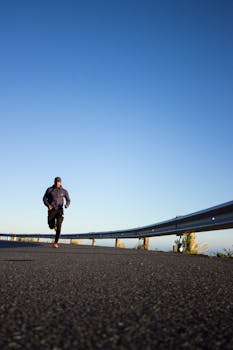
Introduction
Running at night can be exhilarating and convenient, but it also requires extra precautions to ensure safety and comfort. Equipping yourself with the right gear is essential to maximize your nighttime running experience.
1. Reflective Clothing
Visibility is crucial when running in low-light conditions. Opt for clothing with reflective strips or patches to make yourself noticeable to drivers and cyclists.
- Reflective vests
- Jackets with reflective detailing
- Reflective wristbands and ankle bands
2. Headlamp or Handheld Flashlight
A reliable light source not only helps you see obstacles but also makes you more visible to others. Headlamps are hands-free and provide a wide field of light, while handheld flashlights offer directional lighting.
3. LED Safety Lights
Clip-on LED lights can be attached to your shoes, clothes, or running gear. Choose flashing or steady modes to increase your visibility from all directions.
4. Proper Footwear
Wearing running shoes with good grip is vital for nighttime surfaces, which may be unpredictable or slippery.
- Trail shoes for uneven terrain
- Road running shoes for city routes
5. ID and Emergency Contact
Always carry identification and emergency contact information. Consider wearing an ID bracelet or carrying a card in your pocket.
6. Phone and GPS Tracker
Bring your fully charged phone for navigation, emergencies, and to track your route. Running apps can share your location in real-time with friends or family for added safety.
7. Weather-Appropriate Layers
Night temperatures may drop quickly. Dress in moisture-wicking layers that keep you warm and dry while preventing overheating.
- Lightweight base layers
- Windbreaker or rain jacket
8. Hydration Gear
Don't forget to hydrate, even at night. Use a handheld water bottle, hydration belt, or vest for long runs.
Conclusion
With the right gear, night running can be both safe and enjoyable. Prioritize visibility, comfort, and preparedness each time you head out after dark.
Comments
Post a Comment